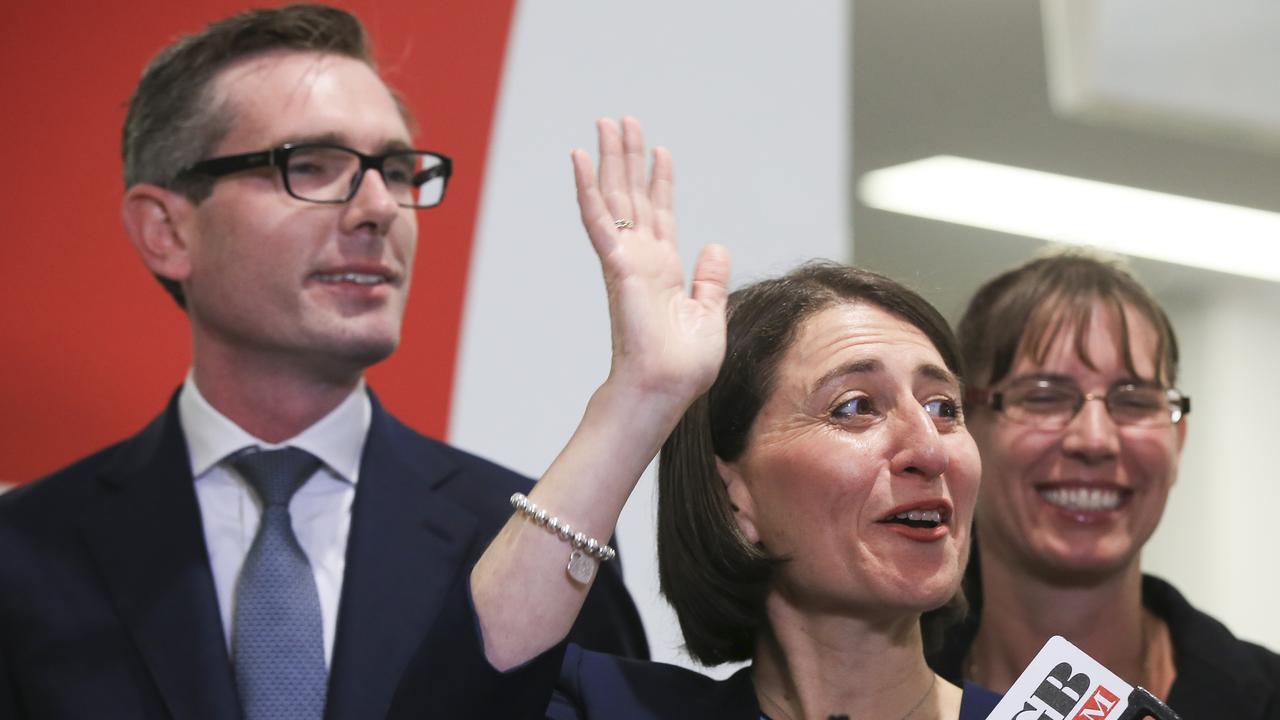
Our political system has not been working terribly well of late. But let us not rush to judgment about a broken system. And, please, can we avoid blaming the victims — the voters? In Australia, Britain and the US it is a common enough refrain to target the masses for destroying the project of the so-called elites. “Trump and Brexit voters are dumb as a bag of hammers,” says a typical post on Twitter. “So tell us, why did you vote for Pauline Hanson?” poses a scribbler from Guardian Australia. “I hit my head.”
This dismissal of the democratic will underscores the reason it was imposed. And clearly voters who endorse disrupters such as Donald Trump and Hanson almost certainly will not subscribe wholeheartedly to all their inconsistent positions.
Rather, these “outsiders” are an antidote to what has preceded them. Like political chemotherapy that invades the body politic to remove cancerous cells, they are not expected to be pleasant.
It is a mistake to think that voters, en masse, don’t understand this. We should not dismiss too quickly the wisdom of the crowd.
“Can we be sure any longer that democracy works?” Matthew Parris asked in The Spectator after Trump’s victory. “Is it really the reliable bulwark against political madness that we always supposed?”
Sure, the 24/7 news cycle is upon us like never before and we no longer have a population united around well-curated mainstream news sources. Twitter, Facebook and other social media drive immediacy, superficiality and Balkanisation in our communications. But the foibles and vanities of politics are not new. And neither is the remedy. If governments or parties are not performing, dump them — no matter the alternative — because it is the only way they will learn.
It pays to remind ourselves of the timelessness of human relations as expressed through politics and the media. Did Shakespeare prefigure Trump shaking up life inside the Beltway? “I heard a bustling rumour like a fray,” Brutus’s wife Portia says in Julius Caesar, “and the wind blows it from the Capitol.”
Politics is always changing, always new but always the same. Or as the Book of Ecclesiastes would have it: “The thing that hath been, it is that which shall be; and that which is done is that which shall be done: and there is no new thing under the sun.” We grapple with the notions of post-truth and fake news as if they are revelations but our delusion is exposed by looking back 70 years to George Orwell’s Politics and the English Language. “Political language — and with variations this is true of all political parties, from Conservatives to Anarchists,” wrote Orwell, “is designed to make lies sound truthful and murder respectable, and to give an appearance of solidity to pure wind.”
Evelyn Waugh was on to all this in 1938 with his novel Scoop, which, save for the missing digital technology, is as searing an examination of media behaviour as you could write today. “I read the newspapers with lively interest,” says Waugh’s Mr Baldwin. “It is seldom that they are absolutely, point-blank wrong. That is the popular belief, but those who are in the know can usually discern an embryo of truth, a little grit of fact, like the core of a pearl, round which have been deposited the delicate layers of ornament.”
In the modern age these fundamentals remain familiar, they are merely amplified, hyperventilated and stimulated much like the stockmarkets have been — volatility has become hyper-volatility; where we once slept on a quandary, there is now a momentary pause of a finger over a send button.
We need to adapt to the new conditions and urge calm rather than blame voters and question our institutions. Parris was honest enough in his Speccie blog: “The reason I am beginning to question democracy is that it is producing results I profoundly dislike.” Those of us who supported Brexit saw it as a perfectly logical expression of democratic will to reclaim sovereignty from a dysfunctional supranational body. It was not a retreat from the world — this has not been Britain’s history — but reclamation of independence. Even many of us who opposed Trump because of his unpredictable lack of orthodoxy could see that the appalling record and candidature of Hillary Clinton, together with her disdainful “deplorables” approach, made the Republican nominee a tempting outlier.
We ought to be ready to blame the hubris of the Democrats and the inability of the Republicans to rally around a more plausible candidate before we blame voters for choosing the more disruptive of two poor options.
And in Australia the political class, urged on by media co-conspirators, has contrived a series of shambles that have denied voters their due and stymied any chance of steady reform.
Kevin Rudd abandoned his claims to fiscal conservatism but, most important, gave up on his great moral crusade by failing to take his carbon pollution reduction scheme to a double dissolution in 2010. From this crisis of conviction sprang the ongoing climate and energy policy dysfunction and the “lazy Susan” approach to political leadership.
Voters who sought renewal by voting for Rudd in 2007 were denied a verdict on him by an internal coup. Disgusted by this, they took away Labor’s majority and left Julia Gillard to cobble together a government. She trashed their confidence by breaking her promise and introducing a carbon tax but voters, again, were denied a chance to pass a verdict on her.
Along the way the Greens repeatedly voted down the promised CPRS but backed the deceptively introduced carbon tax. Understandably, voters turned to Tony Abbott and the Coalition for a clean break.
Yet two years later another internal coup robbed voters of their choice and their prospective verdict. When Malcolm Turnbull went to the polls, just like Gillard, he achieved a pox-on-both-your-houses result.
True, we need a Senate that will respect a government’s mandate. We also need governments that will adhere to the same.
Little wonder that along the way some voters decided to kick some sand into the face of both major parties by voting for Hanson’s One Nation, Nick Xenophon or the Liberal Democrats.
For all the intolerance of Hanson, economic populism of Xenophon or ideological impracticality of the Liberal Democrats’ David Leyonhjelm, perhaps the voters weren’t so silly. Perhaps they delivered a message and a restraint on the major parties designed to provide a cause and effect.
If the Coalition, in particular, is not rethinking its all talk/no action approach to energy policy, denialist position on Muslim integration issues or rigidity on immigration policy, it would be very unwise.
Hanson, for all the offensiveness of her anti-Muslim rhetoric, has the ear of the nation only because others are too afraid to discuss instances of social dislocation.
At least three Sydney high schools are having issues with sexist or extremist Muslim attitudes and the minister responsible is mute and overseas — studying. Turnbull rightly has slapped down Hanson but is loath to buy into the values debate. Hanson says some truly ridiculous things but her supporters, by design or accident, provide pointers to some gaps in our national debate.
In these pages last year Monash University research fellow Matthew Laing blamed voters. “Time to face it, Australia,” he wrote, “we’re all to blame for our dysfunctional politics and now we’re reaping what we’ve sowed.”
He said the electorate put leaders into power with huge expectations to deliver on ambitious promises. “When, after nine months or so, this hasn’t happened, we are inevitably disappointed and start looking around for a new hero.”
Actually, no, we don’t. Their parliamentary colleagues do. And the media does. But, barring exceptional circumstances, voters expect the chance to pass verdict on someone they elected at the start of the term. They have not been given the chance to do that since 2007.




To join the conversation, please log in. Don't have an account? Register
Join the conversation, you are commenting as Logout